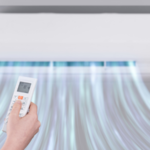Skin Acne: How to Get Rid of them?

Acne can be unsightly, even embarrassing. But it’s treatable.
If you have mild acne, your GP or pharmacist might advise you to use over-the-counter medicines that contain benzoyl peroxide.
You might be prescribed a stronger medicine to reduce bacteria and excess oil, such as dapsone gel (Aczone). You might need to take antibiotic tablets (buy accutane online) if your acne is severe.
Acne – Topical medications
The simplest way to treat acne is with topical medications that come in the form of gels, creams, lotions and ointments. These are known as epicutaneous medications because they are applied to the skin or mucous membranes and do not penetrate into tissues below them.
A topical acne medication might contain benzoyl peroxide, azelaic acid or a retinoid, which is related to vitamin A. These improve your acne by reducing the buildup of oil in pores and killing bacteria that cause inflammation. They might also reduce fine lines and wrinkles, which some people find to be an added benefit.
A prescription topical medication might contain tretinoin, which is stronger than the retinoids available over-the-counter and can help reduce wrinkles in addition to improving acne. This is usually used in combination with an oral antibiotic like tetracycline. This helps clear bacterial infections that can cause moderate to severe acne and might be prescribed in place of or in conjunction with over-the-counter benzoyl peroxide or a retinoid.
Oral antibiotics for acne cure
Antibiotics are pills that you take by mouth and which have been shown to reduce bacteria in the skin. They can be used to treat moderate-to-severe acne in combination with topical benzoyl peroxide and retinoids.
The most effective oral antibiotics for acne are second-generation tetracyclines (minocycline, doxycycline) and macrolides (erythromycin, azithromycin). However, these medications have been linked to resistance development. It is therefore important that they are used for the shortest amount of time possible, and that they are always combined with benzoyl peroxide and a topical retinoid in order to limit their use.
Taking antibiotics for too long can lead to the bacteria on your skin (P. acnes) becoming resistant to them. If this happens, the antibiotics will no longer be effective in treating your acne, and they may also not work for blood and urine infections that you might get in the future. For this reason, we typically only prescribe oral antibiotics to people whose acne has not responded to topical treatments alone.
Isotretinoin – The best acne treatment
Isotretinoin 40 mg (a form of vitamin A, also known as 13-cis-retinoic acid) is the strongest and most effective treatment for severe pimple that does not respond to other medications. It also helps prevent squamous-cell carcinoma of the skin and treats harlequin-type ichthyosis and lamellar ichthyosis. It is taken orally in capsule form.
Side effects of isotretinoin include dry skin and lips, red eyes, and irritated mouth. It has also been linked to depression and suicidal thoughts. However, these side effects tend to disappear after the medication is stopped.
It is important to use birth control if you are taking this medication. A very small amount of isotretinoin passes into the fetus when women take it during pregnancy. Isotretinoin can also cause birth defects in a baby born to a woman who took it during pregnancy. Talk to your doctor about birth control options.
Surgery
In cases where acne does not respond to oral and topical medications, a dermatologist may recommend surgical options as an additional treatment. The procedure involves using a sterile tool to physically remove the material causing the blemish from the skin. The area can be numbed with either a topical or injected anesthesia to ensure a painless experience.
This includes techniques like extractions, where the blemish is manually removed with a sterile instrument, and the insertion of medical-grade steroid injections into cysts and pustules to reduce inflammation. The dermatologist may also perform surgery to minimize the appearance of pimple scars, such as rolling or boxcar scars, by surgically “unroofing” the scar and removing excess tissue. Dr Hussein focuses on the three core surgical management modalities (Taylor Liberator subcision, punch excision and fully ablative resurfacing) as this allows him to maintain a high case volume in each of these pathways and thereby develop appropriate experience. He also carries out other modalities for pimple scar management, however these do not contribute significantly to his overall practice.


 English
English 


